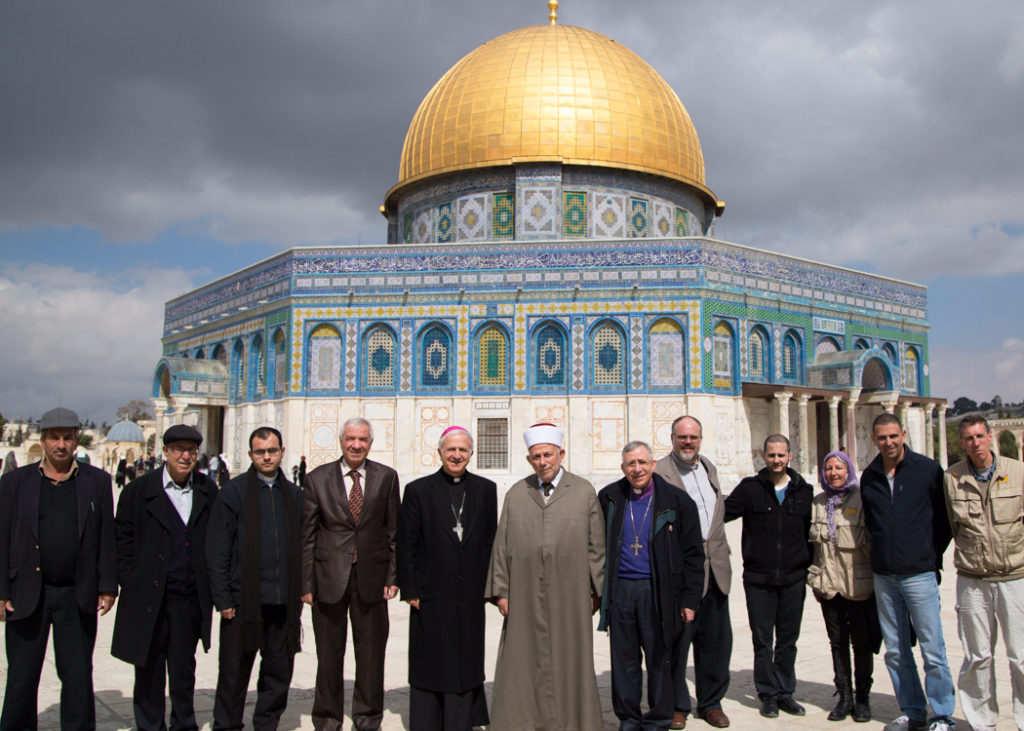The State of Our Partners
Last night President Trump opened his address to Congress by proclaiming that “The state of our union is strong,” followed by his assessment of his agenda in 2017, and laying out a vision for what 2018 might hold. We feel it is appropriate to provide our own brief review of the United States’ impact on our brothers and sisters in Christ around the world through their own words.
Ban on travelers from Muslim majority countries and reduction in refugee resettlement
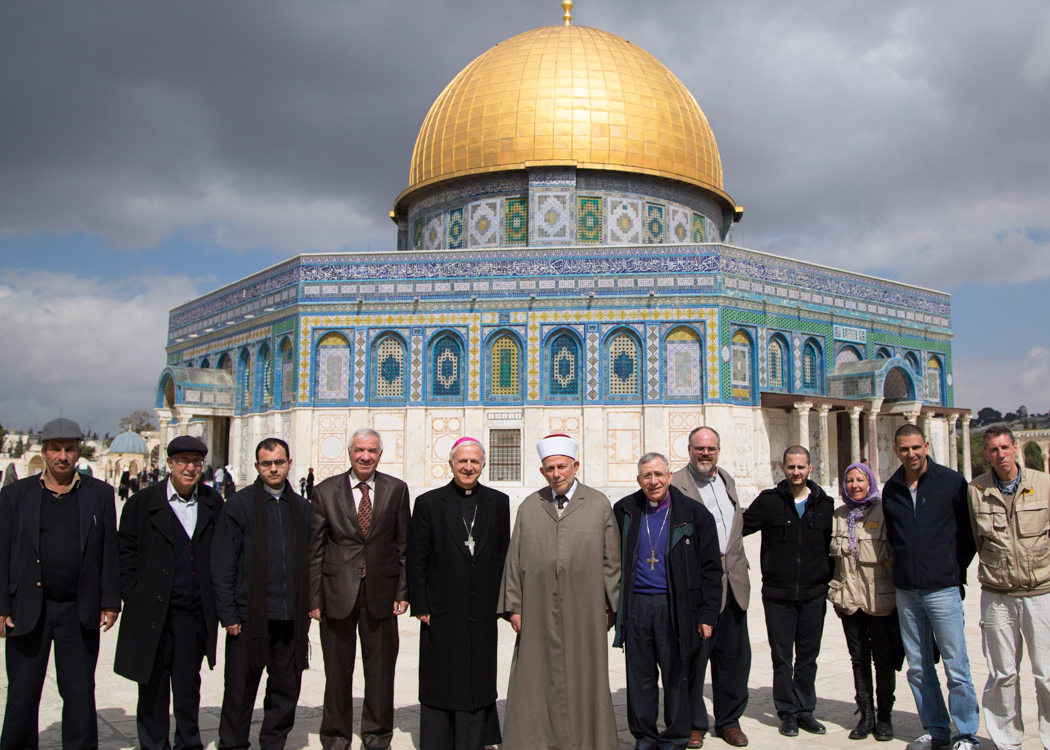 On the president’s decision to reduce the number of refugees admitted to the United States, and to block travelers from seven Muslim majority countries, we heard from Bishop Emeritus Munib Younan of the Evangelical Lutheran Church in Jordan and the Holy Land:
On the president’s decision to reduce the number of refugees admitted to the United States, and to block travelers from seven Muslim majority countries, we heard from Bishop Emeritus Munib Younan of the Evangelical Lutheran Church in Jordan and the Holy Land:
I am worried, not only for those who can no longer enter your country, but for the safety of my neighbors in this region. I am afraid that the decision to deny entry for citizens of seven Muslim-majority countries while suggesting preferential treatment for Christians from those same countries will be harmful to many smaller communities in the region. This approach will be especially harmful to Arab Christians. In the Arab world, Christians have a long history of living side by side with our Muslim neighbors. We reject any move to divide Arab society along religious lines, and continue to see ourselves as deserving equal citizenship with equal rights and equal responsibilities.
I am worried, because I myself am a refugee, and know firsthand the struggles refugee families face. At the same time, as a Lutheran bishop, I know that turning away refugees of any religion contradicts the message of Jesus Christ. Jesus himself was also a refugee, who sought refuge and safety with his family in Egypt. Throughout his life, through his teaching and his actions, Jesus showed concern for the stranger and the outcast. Read the full letter
As a result of this decision, approximately 80,000 refugees who would have received safety and the opportunity to work for a new life in the United States, have been left in refugee camps or have opted for more dangerous routes to escape persecution. The lack of American leadership in the program was cited by many other governments as an excuse to reduce their resettlement efforts as well. Islamophobic retweets by the president also prompted rebuke from American faith leaders.
Relocation of US Embassy to Jerusalem
The President also further hindered the possibility of peace between Palestinians and Israelis with his decision to relocate the United States Embassy to Jerusalem. A move that was widely decried by partners and the international community. This action provoked the Heads of Churches in Jerusalem to write an open letter to the president saying:
Our solemn advice and plea is for the United States to continue recognizing the present international status of Jerusalem. Any sudden changes would cause irreparable harm. We are confident that, with strong support from our friends, Israelis and Palestinians can work towards negotiating a sustainable and just peace, benefiting all who long for the Holy City of Jerusalem to fulfill its destiny. The Holy City can be shared and fully enjoyed once a political process helps liberate the hearts of all people that live within it from the conditions of conflict and destructiveness that they are experiencing. Read the full letter
In a letter from the South Africa Synod of the United Congregational Churches of Southern Africa, partners responded saying:
We found his announcement of treating Jerusalem as a capital city of the Israeli government manipulative and misleading. This utterance insinuates that Jerusalem only belongs to the State of Israel and that Palestinians are aliens in the area. Nothing could be further from the truth than President Trump’s dangerous insinuation. His utterances feed into the wrong notions that Palestinians are not children of Abraham hence aliens in the area. Read the full letter
Response to Hurricane Maria
Last night the president also called on Americans to continue to support recovery efforts in Puerto Rico where, four months after Hurricane Maria, tens of thousands of citizens remain without power. There was no hint of irony in his statement, even though just the day before, aid to Puerto Rico had been dramatically reduced. In the midst of the worst disaster on the island in recent memory, Global Ministries and partners responded immediately to the needs of the communities. A webinar was held with Miguel Antonio Morales, General Pastor of the Christian Church (Disciples of Christ in Puerto Rico), prayers were lifted up from Rev. Edward Rivera-Santiago, General Pastor, United Evangelical Church of Puerto Rico, and we were moved by the testimonios, of the individuals serving as wounded healers. Much work remains to be done, and you can hear a vision for a more hurricane resilient and sustainable future for Puerto Rico in a webinar on February 15th, with Juan Rosario Moldanado of Amaneser 2025.
Use of racist language describing Haiti, El Salvador, and African countries
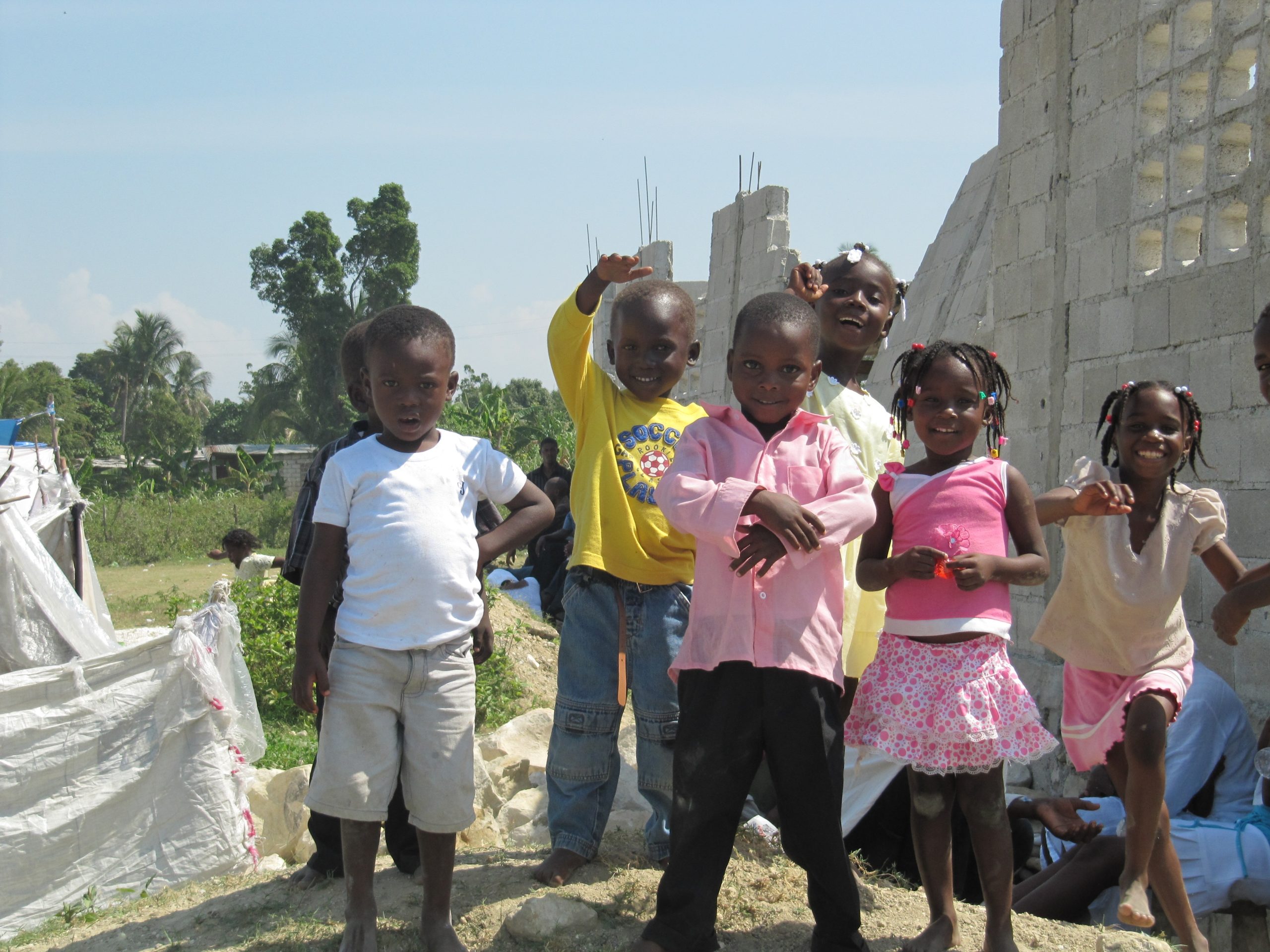 Partners in several countries replied with words of thanks when Global Ministries shared our letter to the President with them, calling on him to apologize for his hurtful and offensive descriptions of Haiti, El Salvador, and the countries of Africa. The affirmation that “We are Family…No Matter What” prompted many partners to reply with messages echoing that our bond as brothers and sisters would not be overshadowed by the words of government leaders.
Partners in several countries replied with words of thanks when Global Ministries shared our letter to the President with them, calling on him to apologize for his hurtful and offensive descriptions of Haiti, El Salvador, and the countries of Africa. The affirmation that “We are Family…No Matter What” prompted many partners to reply with messages echoing that our bond as brothers and sisters would not be overshadowed by the words of government leaders.
Consideration of military intervention in Venezuela
In Venezuela, as the country sought a way forward in the midst of economic uncertainty and political instability, President Trump openly considered military actions against the current government. This prompted a letter from Global Ministries and the leadership of the Christian Church (Disciples of Christ) and the United Church of Christ. While the military option was not further pursued, the words of that letter still bear an important reminder:
Global Ministries has been engaged in a relationship of solidarity and accompaniment with the people of Venezuela for more than 60 years. As such, we have walked alongside Venezuelans throughout various moments in the history of that nation. As we watched the news of the recent election, we would like to share with you our deep concern for the people of Venezuela and their future. We are deeply convinced that any US military intervention in Venezuela would exacerbate the current crisis and could bring back the darkest pages in the history of the country when the military overthrew civil governments to install dictatorships and de facto presidencies. Every time Venezuela has suffered a military episode in its recent times, the lives of the poorest and the most vulnerable population have been severely damaged. Read the full letter
Zimbabwe between crisis and Kairos
At the end of November, Robert Mugabe ended his 37-year rule as Zimbabwe’s president, causing the Heads of Christian Denominations to lay out a vision to move the country forward and maintain peace. In the statement, they recognized the role churches had played in continuing an unjust and unsustainable system.
But the current situation is not only the doing of the ruling party and government. It is also the result of the connivance of the different arms of the state and complicity of the church and civil society. All of us at some point failed to play our roles adequately. The church has lost its prophetic urge driven by personality cults and superstitious approaches to socio-economic and political challenges. Civil society over time has become focused on survival and competition and lost the bigger picture of the total emancipation of the population. The current situation is also a result of the many people in the ruling party who feel outdone, but have enjoyed unbridled access to the trough of patronage. Also, journalists fanned the politics of hatred by giving it prime space in the name of sales and profits. In a way, all Zimbabweans must take some level of blame for our current situation.
And closed the letter with:
We can either take the current situation as a mere crisis to be resolved by a winner-takes-all mentality or we use this as an opportunity for us to find one another to build something that is permanently healing for our nation. The first option spells disaster for us and future generations. The second option allows us to embrace our situation as a Kairos, an opportunity given to us by God to dream together that another Zimbabwe is possible! Read the full letter
Escalation of military tension on the Korean Peninsula
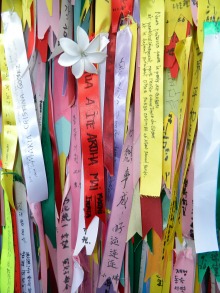 President Trump also participated in the escalation of military tension on the Korean Peninsula through speeches and tweets that caused considerable concern for the National Council of Churches in Korea, prompting an open letter to their president Moon Jae-In:
President Trump also participated in the escalation of military tension on the Korean Peninsula through speeches and tweets that caused considerable concern for the National Council of Churches in Korea, prompting an open letter to their president Moon Jae-In:
Military tension is at its height in the Korean peninsula and there is fear of war spreading among the people. We understand that you are also deeply concerned, but the lives of the people in South Korea should not be threatened by the provocative acts of the US and North Korea.
The road to peace is a difficult one, but the harder it gets the more important it is that we keep the principle. Dialogue is meant to resolve such extreme situations, which is why its affect is so highly valued. We cannot start sincere dialogues when we place blame for the opponent’s extreme actions or when we insist on various pre-conditions for dialogue.
We sincerely ask of the President to swiftly take matters into hand. We ask that through unconditional dialogues, the two Koreas pave way to independently resolve the neo-Cold War crisis in the Korean peninsula. The NCCK is ready to take active participation. Read the full letter
South Korea and North Korea have thankfully resumed talks at the Demilitarized Zone and are seeking to repair their tenuous relationship through a series of goodwill efforts at the upcoming Winter Olympics.
Violence against the Rohingya people in Rakhine state of Myanmar
The Church of Bangladesh has called for greater global participation in the resolution of the refugee crisis sparked by renewed violence in Rakhine state. Politicians in Myanmar borrowed a familiar line, and dismissed what the church called “an extreme violation of humanity” as “fake news.”
We do not think comments and concerns are enough to resolve the situation. For the last 30 years this episodic fleeing has been going on and nearly 400,000 Rohingyas took shelter in Bangladesh prior to this most recent event. Bangladesh has yet to solve the issue and, in the meantime, Myanmar has developed economic and political ties with neighboring countries like China and India, who have economic interests in Rakhine state due to large-scale development efforts, which also has a role in the persecution.
Without international pressure and systematic diplomatic efforts, the current crisis will not be solved. But the fate of the displaced people is uncertain now. Whatever the ethnic differences, people should not suffer in such a brutal manner. The Rohingya have roots that date back centuries in Rakhine state and Myanmar cannot deny that history and make them a landless and stateless people. It is absolutely a gross violation of basic human rights. Read the full letter
Continued human rights abuses in the Philippines
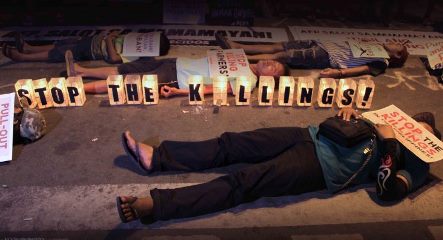 The National Council of Churches in the Philippines lifted up concerns about the expanding “drug war” which has led to the murder of scores of young people without due process. Reports indicate that Trump said in a phone call to Rodrigo Duterte, president of the Philippines, that the country was tackling the drug problem the “right way.”
The National Council of Churches in the Philippines lifted up concerns about the expanding “drug war” which has led to the murder of scores of young people without due process. Reports indicate that Trump said in a phone call to Rodrigo Duterte, president of the Philippines, that the country was tackling the drug problem the “right way.”
The National Council of Churches in the Philippines condoles with the bereaved families of these young people. We pray that God’s holy comfort overshadow them now and in the days to come.
Be it in the name of the war against drugs or the all-out-war under Oplan Kapayapaan, terror and impunity stalk many of our communities. While we re-iterate our support to the campaign against illegal drug use, we are appalled at the way such war on drugs is being conducted. Young people and the poor have become vulnerable to impunity while suspected big-time drug syndicates have their day in court.
The slaughter has to stop. Impunity has to end. Let justice be meted out. Read the full letter
Conclusion
We conclude by saying that the state of our partnerships is strong. Through our core values of presence, mutuality, community, justice, and peace, our relationships with partners are resilient, and with your support, Global Ministries continues to walk side-by-side with partners around the world in our shared mission that seeks justice, reconciliation, and peace for all of God’s people.

